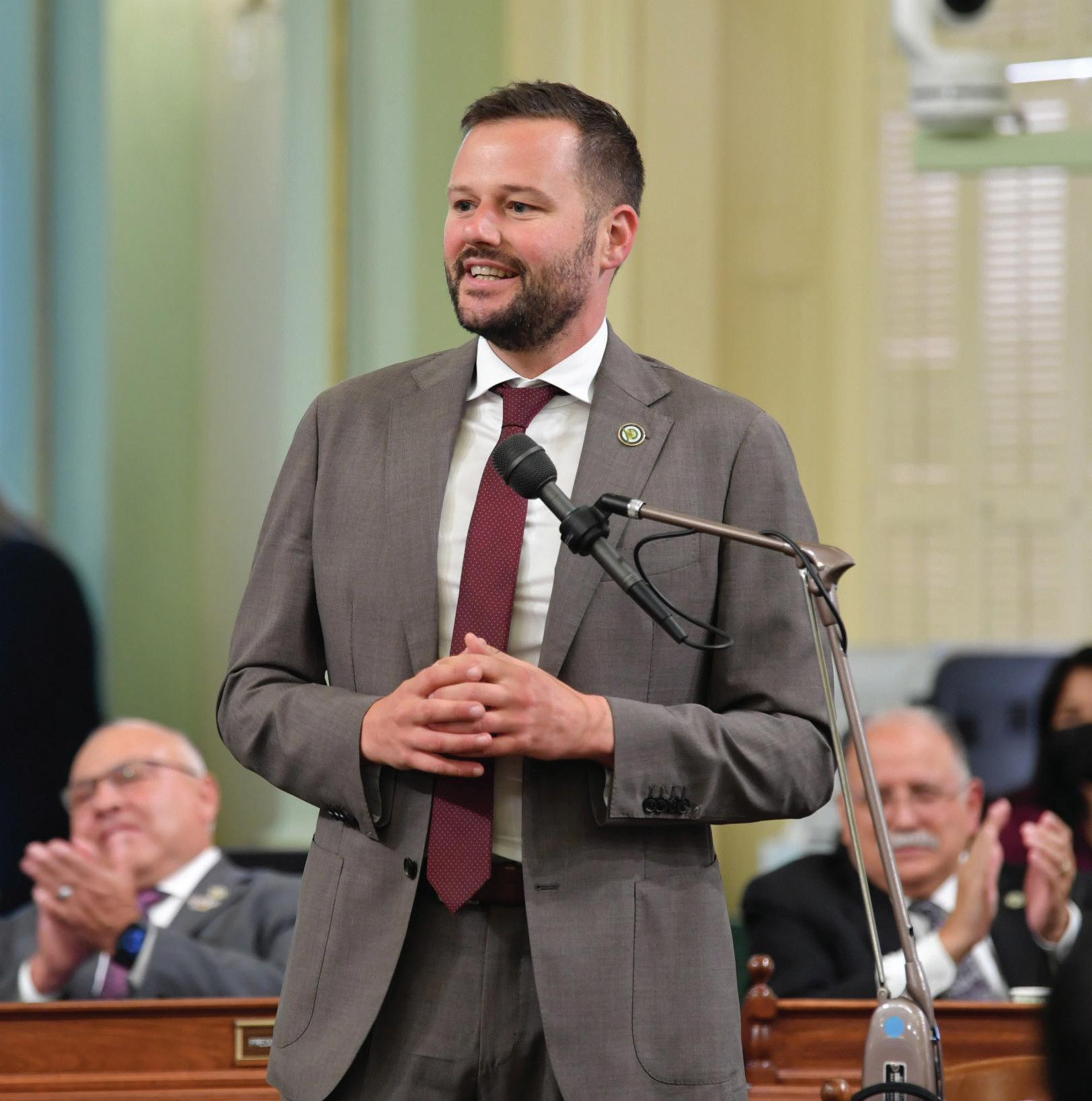
3 minute read
Bill To Revive Downtowns By Converting Empty Offices to Homes
COVID-hollowed downtowns could be revived under state legislation that would clear away many local government impediments to converting offices to multifamily housing, and the bill would also stimulate grants to developers who want to convert offices to badly needed housing.
California State Representative Matt Haney, D-San Francisco, introduced Assembly Bill 1532 which categorizes office conversion projects as "by right" developments. It would streamline the permitting and review process for housing projects by preventing a city or county from requiring certain permits to convert a vacant office into housing. There are hundreds of empty offices in downtown San Francisco and throughout the state — and a critical need for housing.
The proposed Office to Housing Conversion Act stops local governments from slowing down or killing office-tohousing conversions by making their approval automatic and imposing strict time limits on all building permits. It also blocks local governments from ‘nickel-and-diming’ projects to death by capping unnecessary fees and design requirements. And the bill would further incentivize conversions with the creation of the California Downtown Recovery Catalyst Fund that gives grants to projects that turn unused office space into housing.
In San Francisco, for instance, only about 40% of those who worked downtown have returned to their offices, and with the popularity of work-from-anywhere movement, it is not likely many more workers will opt for costly, time-consuming commutes when they are able to work remote. Haney’s bill is expected to be taken up by committee early this spring.
The number of people working from home has tripled since the pandemic according to the U.S. Census Bureau, and California has the highest percentage of home-based workers in the country with roughly 35% of Bay Area residents working from home. According to a study conducted by UC Berkeley, cities that don’t include housing in their downtowns experience significantly slower recovery from economic crises than downtowns that prioritize livability. Unfortunately, many of California’s downtowns were designed without housing and night-time uses.
“How people work was permanently changed by the pandemic and the downtowns that relied on commuters are starting to look like ghost towns,” said Assemblymember Haney. “Turning empty offices into housing is one of the only paths forward to saving our downtowns.”
Meanwhile, due to California’s decades-long housing shortage, the demand for rental housing is sky high with many cities reporting rental housing vacancy rates at just 2%. This lack of housing has driven up prices, increased homelessness and caused millions of California residents to be burdened with rents they can't afford.
Despite the need for more housing and a plummeting demand for office space, office conversions remain difficult to execute due not only to the hard costs of construction, but also to extensive permitting barriers, bureaucratic hurdles, and unaffordable fees. Based on other adaptive reuse efforts that have been successful in Canada and New York, AB 1532 provides incentives and removes local government barriers to conversions by enacting the following regulations statewide: w Removing the authority of city councils, county boards of supervisors, planning commissions, or other planning oversight boards to deny approval of any office-to-housing conversions or delay them through unnecessary review. w Requiring all office-to-housing conversions be allowed in all areas regardless of city zoning laws. w Prohibiting local governments from requiring processes that are often used to delay projects such as special permitting, review processes, or citizen appeals.
Reviving Downtowns
(Continued from page 16) w Requiring planning departments to respond to office-to-housing project applications within 90 days of submission. w Banning local governments from creating new requirements or imposing new fees that apply only to office-tohousing conversions. w Prohibiting impact fees that are not directly related to the construction of office-to-housing projects and allowing the project sponsors to pay these fees over the space of 10 years. w Require that all office-to-housing projects dedicate 10 percent of the total amount of housing units created by the project to persons and families of low or moderate income.


“We have to move fast if we’re going to stop our downtowns from crossing the tipping point into urban decay,” said Haney. “Unfortunately, history shows that if we leave it up to local governments, they’ll hold hearings and pay for studies until it's too late. This bill stops the bureaucracy and will allow us to move fast to build desperately needed housing and bring life back to our downtowns.”










